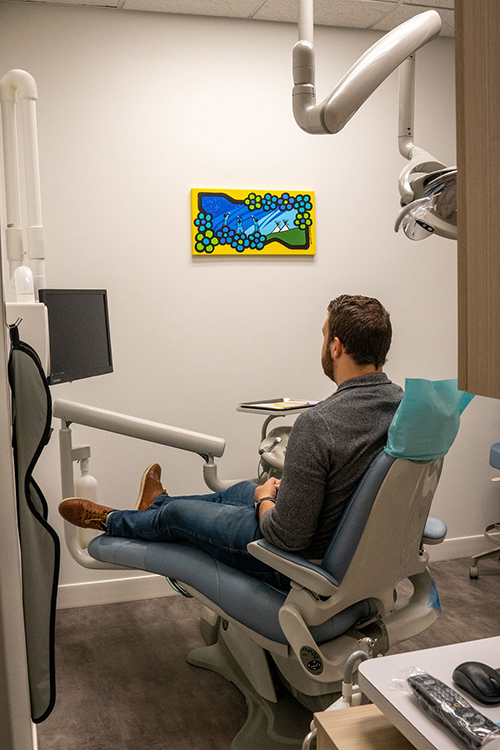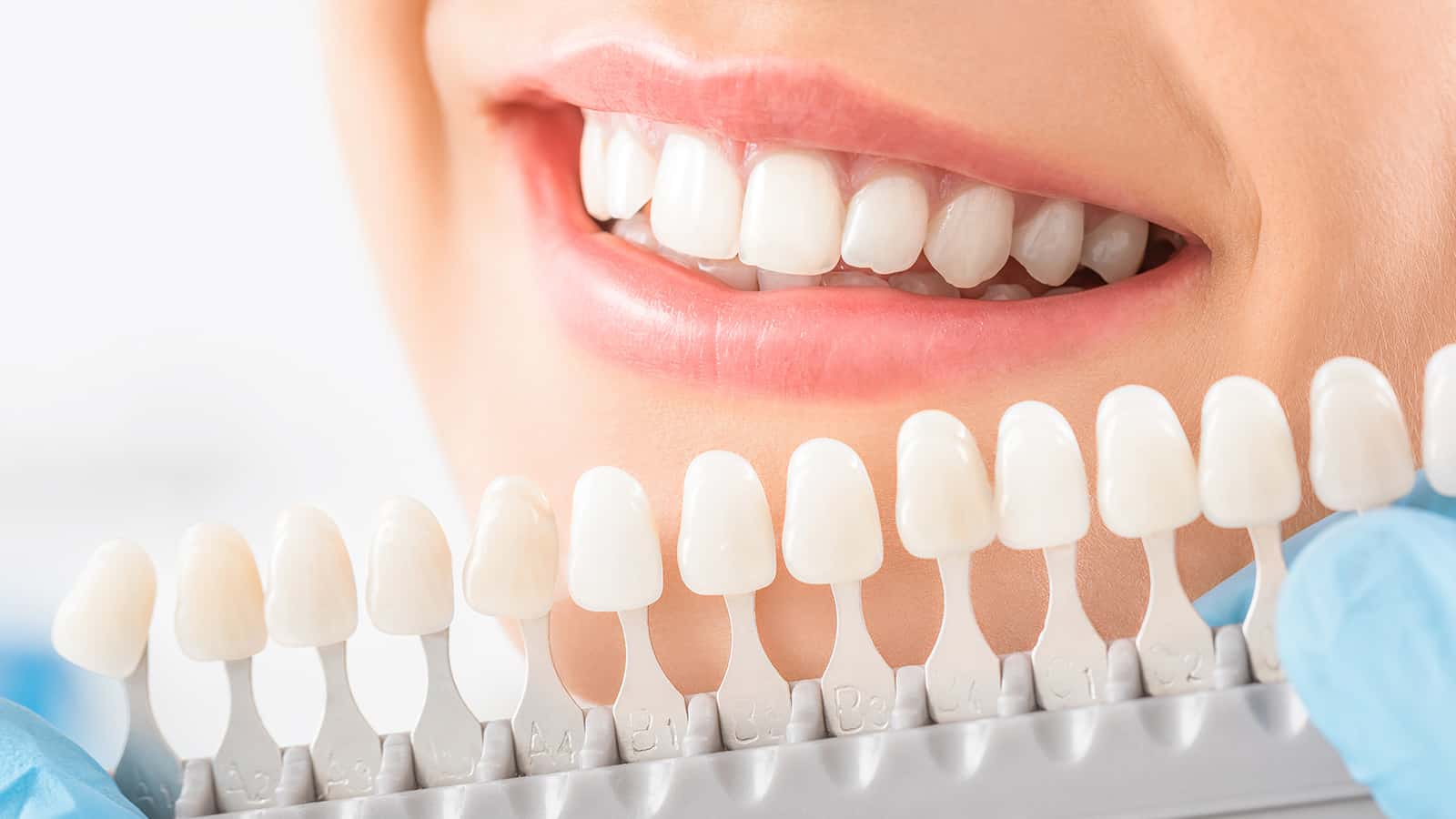Basic Restorations
Restorations – Basic
Fillings, Root Canals, Extractions, Teeth Whitening, and More.
While the use of fluoride and an increase in patient awareness has helped reduce the incidence of dental disease, teeth are still susceptible to cavities, infection, and breakage and sometimes need to be restored back to health. Through improved techniques and modern technology, we are now able to offer more options for restoring a tooth back to its normal shape, appearance and function.
What qualifies as a basic restoration?
A basic restoration is a term used to explain the replacement of a missing or damaged tooth structure that does not include the involvement of a laboratory and can be conducted at the dental clinic. It is a categorization of dental work that is often covered by your personal dental plan up to a certain percentage and then also up to a predetermined total amount per year.
Procedures that are considered basic are as follows:
- Filling
- Root Canal
- Extraction or Removal of Teeth
Will my dental plan cover basic restorations?
Every dental plan and insurer has different coverage amounts, but often when employers have dental benefits for their employees, basic restorations are included in the coverage list. However, they typically do not provide 100% coverage on basic dental work. The level of coverage can be anywhere from 50-80% for basics.
Also, at BLOK Dental Studio, it is our commitment to you that you fully understand your oral health treatment plan and the cost associated with it. One of our administrative professionals can assist you in understanding exactly what dental coverage you have before you agree to any dental work. Our team is knowledgeable on the various insurance providers in the market and can provide guidance and information on the insurance process as it pertains to you.
Fillings
Fillings are done when there is a cavity in the tooth. Your dentist will apply freezing to the affected area so the tooth decay can be completely cleared from the tooth. Once the tooth is free of decay and the area is ready for the filling, your dentist, working with an assistant, will fill the tooth and restore it back to its normal shape and size.
What causes a cavity?
The softening of your tooth’s enamel (tooth decay) happens over time and the end result of that decay is a cavity. When your enamel is weakened by the acids that are produced by bacteria in the mouth, a cavity appears either inside the tooth or on the surface.
That bacteria is ultimately what leads to a cavity, but the underlying cause of the bacterial growth is failure to properly brush and floss on a daily basis. There are also foods that can contribute to tooth decay – sugary food and drink are the worst culprits.
This is why the BLOK team recommends seeing you for a routine checkup every 6 months. At that routine appointment, you will receive a thorough cleaning of your teeth to remove any plaque that is present before it becomes a problem.
What kind of fillings do you use?
At BLOK Dental Studio, every treatment is completed with your comfort and aesthetic in mind. We use composite fillings because they work very well, and allow us to restore your tooth back to its original appearance. Amalgam fillings are available upon request.
Root Canal Therapy
Root canal therapy is needed when the nerve of a tooth is affected by decay or infection. In order to save the tooth, the pulp (the nerve and vascular tissue inside the tooth), bacteria, and any decay are removed and the resulting space is filled with special, medicated dental materials which restore the tooth to its full function.
Having a root canal done on a tooth is the treatment of choice to save a tooth that would otherwise have to be removed. Many patients believe that removing a tooth that has a problem is the solution, but what is not realized is that removing the tooth can cause significant problems for adjacent teeth which can end up being very costly to fix.
Root canal treatment is highly successful and usually lasts a lifetime, although, on occasion, a tooth will have to be retreated due to new infections.
How do I know when I need a root canal?
Your dentist will determine whether or not you need a root canal based on the inspection of your mouth and a corresponding x-ray. The following are some symptoms that may indicate the need for a root canal:
- An abscess (or pimple) on the gums
- Sensitivity to hot and cold
- Severe tooth pain
- Swelling and/or tenderness
Please schedule an appointment with the BLOK Dental team if you have any questions or concerns about anything happening in your mouth. Preventative care is very important and if we can intervene early and help prevent tooth decay, we can possibly eliminate the need for root canals and fillings.
Reasons for root canal therapy
- Decay has reached the tooth pulp (the living tissue inside the tooth)
- Infection or abscess have developed inside the tooth or at the root tip
- Injury or trauma to the tooth
What does root canal therapy involve?
A root canal procedure requires one or more appointments and can be performed by your BLOK Dental Studio dentist.
While the tooth is numb, a rubber dam (a sheet of rubber) will be placed around the tooth to keep it dry and free of saliva. An access opening is made on top of the tooth and a series of root canal files are placed into the opening, one at a time, removing the nerve tissue and bacteria. If tooth decay is present, it will also be removed with special dental instruments.
Once the tooth is thoroughly cleaned, it will be sealed with either a permanent filling, or, if additional appointments are needed, a temporary filling will be placed.
At the next appointment, the roots and the inside cavity of the tooth will be filled and sealed with special dental materials. A filling will be placed to cover the opening on top of the tooth. In addition, all teeth that have had root canal treatment should have a crown (cap) placed. This will protect the tooth and prevent it from breaking, and restore it to its full function.
After treatment, your tooth may still be sensitive, but this will subside as the inflammation diminishes and the tooth has healed.
You will be given care instructions after each appointment. Good oral hygiene practices and regular dental visits will contribute to the long term success of your root canal treatment.
Whitening & Teeth Bleaching
A pearly-white smile is beautiful to look at and can greatly improve self-confidence. BLOK Dental can help you achieve this with teeth whitening.
Teeth can become stained or discoloured through tobacco use, and drinking dark liquids such as red wine, coffee, tea, pop, etc. However, the natural aging process and prescription medication use can also cause yellowing.


